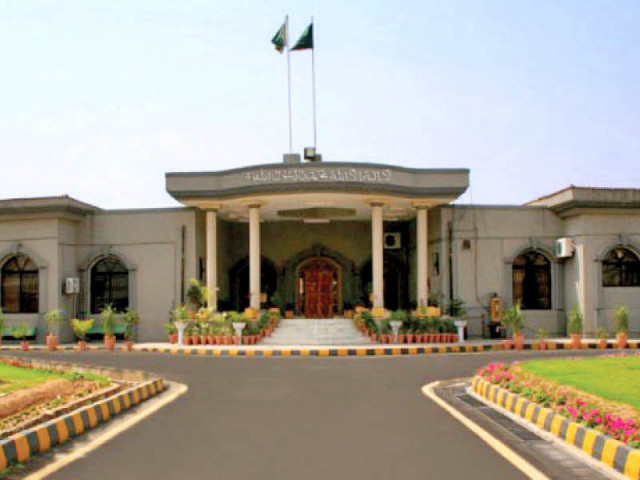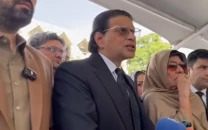Computerisation of records: IHC directs government to finalise PC-1 project
Planning Commission says it’s ready to reconsider revised cost of plan

Planning Commission says it’s ready to reconsider revised cost of plan. PHOTO: EXPRESS
Justice Noorul Haq Qureshi ordered the officials of the Ministry of Planning, Development & Reform, Ministry of Interior, Islamabad’s administration, the National Database and Registration Authority (NADRA) and others to make efforts for implementing the project as since it is of public importance.
Under the project, biometric systems, closed-circuit television cameras (CCTV) would be installed while all revenue records in the capital would be computerised within a month.
“I wish to see you all [government officials] supporting the project because it’s a public interest project,” Justice Qureshi remarked. He revealed that a large number of forgery cases are referred to the courts on a daily basis, consuming a lot of time.
“Can’t you all make efforts to resolve the miseries of people,” he said, adding that biometric systems, CCTV cameras and computerisation of records in different government offices would provide relief to the general public.
The IHC Bar Association, through its former secretary general Mohammad Waqas Malik, had approached the IHC in December 2016 seeking court’s help in computerising revenue records of the Islamabad Capital Territory, introducing biometric systems and CCTV cameras for the moment when built-up properties, land and vehicles are transferred and FIRs are registered and verifications.
The petitioner had urged the court to direct NADRA to provide these facilities, excluding commercial packages, on a cost-to-cost basis. Malik had named the secretary of Interior Ministry, Islamabad’s chief commissioner, NADRA chairman, Inspector General of Police and excise and taxation officer as respondents in the case.
When the case was taken up on Monday, the Islamabad Advocate General Mian Abdul Rauf assured the court that every effort would be made to resolve the petitioner’s grievance. He admitted that the project, which started in 2007, should already have been completed.
Earlier, the chairman NADRA had assured the court that the body would fully cooperate and facilitate the parties wherever required.
On Monday, an official of the Planning Commission told the court that the project was worth Rs88 million, of which Rs22 million had been paid to the relevant department, while the remaining Rs66 million would be carried forward.
He added that while the project had been approved, no progress had been made because the planning commission was not satisfied with the interior ministry’s justification for revising cost of the project.
Interior ministry had submitted a revised PC-1 plan worth Rs151 million to the planning commission noting that specifications for the hardware and software had changed and needed to be upgraded after the project had been transferred to it under the directives from the Prime Minister in 2015.
The Planning Commission, however, wanted the ministry to utilise the sum it had already sanctioned, instead of submitting a revised plan.
At this moment, Justice Qureshi intervened and noted that the revision was a reasonable demand and the officials should finalise the technical queries within the shortest possible time.
To this, the planning commission official assured the court that the ministry was ready to reconsider the PC-1.
Following the submissions, the court disposed of the petition with directions to the parties involved in it to support each other and take personal interest to resolve the matter as it was a public interest project and would provide relief to masses.
Published in The Express Tribune, March 7th, 2017.



















COMMENTS
Comments are moderated and generally will be posted if they are on-topic and not abusive.
For more information, please see our Comments FAQ